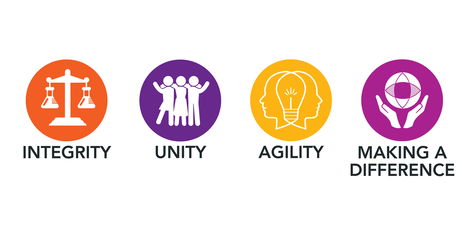
First, some thoughts on the subject of "Council Dynamics and Decision Making" as presented by Tracey Lorensen from the municipal government consulting firm Paragon Strategic. My overall takeaway following her two-hour talk: Respect the professionals and the public, listen actively, ask good questions and always cultivate "beginner's mind" while working with whatever the unpredictable tides of municipal engagement bring to the shoreline.
* Elected representatives, staff, committee members and the public = "We." (Keep egos in check and govern from this expanded, inclusive perspective while also confronting reality and making sometimes hard decisions.)
* Little known fact: Only about 10% of municipal business requires the involvement of council for policy decisions. The lion's share of day-to-day business is operational and carried on by staff under the CAO's overall direction.
* Council's job is to be visible in the community ~ available, responsive and ready to act as advocates as best they can for citizens within the limits of personal time and energy.
* Staff relationship: Value and respect civic professionals. Ask good questions that have been formulated with forethought, homework and careful perusal of civic plans and agenda packages. Expect and require exceptional performance from staff. Council must provide clear direction to its Chief Administrative Officer. Be disciplined in the number of staff reports that you request while recognizing that each requires considerable energy and time.
* Views and considered opinions from vocal members of the public are to be valued, but not at the expense of professional input and your own considered judgement. Remember that the silent majority is indeed silent and that their opinions are likely not nearly as direct, pointed, urgent nor loud as those who do speak up. Some people seek and create dramas -- don't get drawn in and allow other people to use you either unconsciously or "for sport."
* Don't grandstand from the council podium. Track your air time ~ if you're speaking at length about every agenda item, consider limiting your comments. No need to "vehemently agree" with other councillors (i.e., make an obvious statement when a simple hand-raised vote in the affirmative is confirmation enough). Listen actively and consider the question "do I need to speak?"
* Councillors are advised to be "more curious than certain" in their view of any given matter. On the road to a decision, it's wise to consider any real or theoretical opposing/conflicting opinions even if these opinions are not being voiced. Always stay open to changing your mind based on facts, data and reasoned arguments.
* Keep in mind the "taxpayers of the future" when making spending decisions, i.e. regular infrastructure upkeep is essential even if costly. When being asked why such-and-such is not being accomplished, reply that "taxpayers will only get the services they wish to pay for and can afford." Do not apologize for the cost of living in "paradise."
* Recognize the difference between single "projects" (such as building a bridge) and a higher level "strategic plan" (i.e., fiscal responsibility).
* Be patient: "Nine people can't have a baby in one month."
* The cost of property and business taxes are often less important to "investors" (i.e., potential new residents and businesses) than a particular community's overall reputation, stability and the level of civility displayed during council meetings.
* "You're in the business of disappointment. Don't be afraid to disappoint people." Remember that elections are the most "robust" process a democracy can offer the electorate and that you've been selected for a four-year term. Be true to your own higher angels.
* There is such a thing as "obstructionist" councillors whose major goal and objective is to preserve the status quo and subvert growth, change and evolution. Work with, recognize, respect and adapt to all viewpoints.
* "The law is a crude way to resolve issues."
* Recommended reading: Stephen Covey's The Speed of Trust.
Second, some notebook jottings from a session on "Respect In the Workplace" offered by BC labour, employment and human rights lawyer Marli Rusen. More on this subject in Ms. Rusen's blog.
PS Local incidents at Sooke's City Hall and the preliminary work by the province on Bill 14 led the District of Sooke to create its own Anti-Bullying and Harassment Policy (Policy No. 7.13) in May, 2011.
* The Province of BC passed the Workers Compensation Amendment Act (Bill 14) in 2012. It dramatically expands the definitions of workplace bullying enforced by WorkSafe BC. Rather than merely physical harm, it now includes a wide range of aggressive behaviour, including belittlement, intimidation, shaming, psychological harm, aggressive sarcasm, gossip, tone of voice, language and hostile facial expressions.
* Mayor and council must champion integrity and fair process. The District has a legal duty to prevent or minimize the conditions responsible for a "disrespectful workplace," and this includes during council meetings. Elected officials are in a position to be role models. The CAO and Corporate Officer are ultimately responsible for their staff, however council must do its part in mitigating risk to the District, staff and the public at large.
* The legal test of what constitutes bullying is based on a provincial community standard: "What would a reasonable person living in BC today think of this situation?" Even if no legal action results, there will be impacts on the bully through the courts of "public and staff opinion."
* Unacknowledged and ongoing disrespect in the workplace will cost the municipality in terms of lost motivation, absenteeism, spikes in medical leave and the loss of talent to other municipalities. It is also difficult to shake the bad reputations that can cling to certain municipalities that have not dealt effectively with workplace bullying.
* Excuses such as "they started it," "I had to lay into someone because this issue was so close to my heart," or "I acted this way because it's just the way I am" are not acceptable. All parties are expected to act as adults who know their own personalities and shortcomings, and moderate their behaviours accordingly.
* Intense debates and fact-based disagreements and a desire for more information are fine and acceptable. Intimidation, name-calling and personal attacks are not.

 RSS Feed
RSS Feed